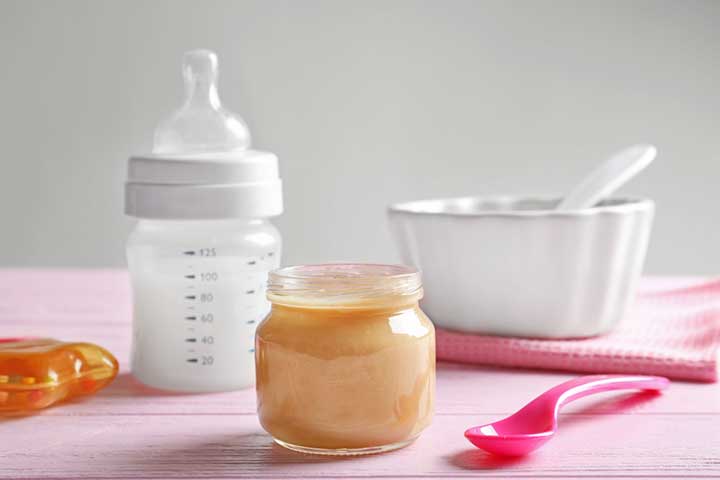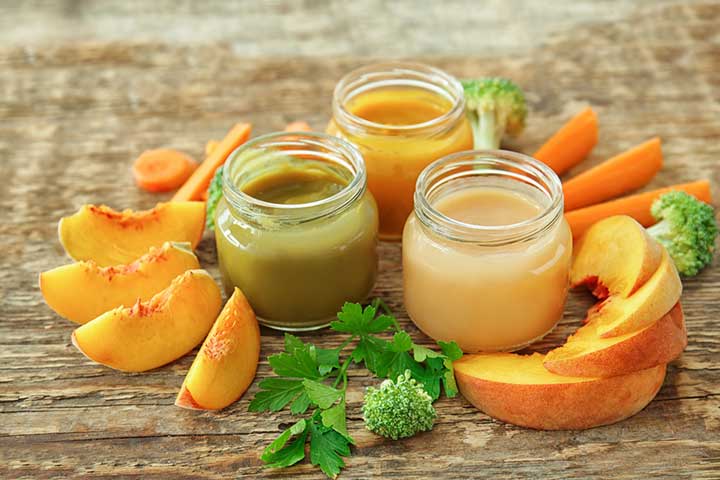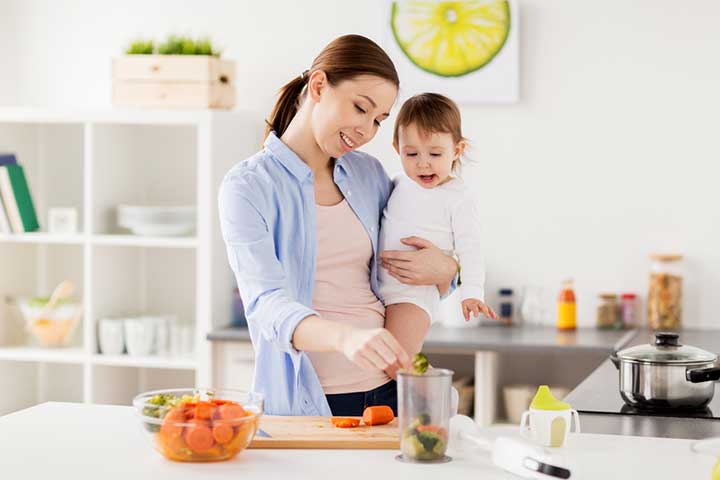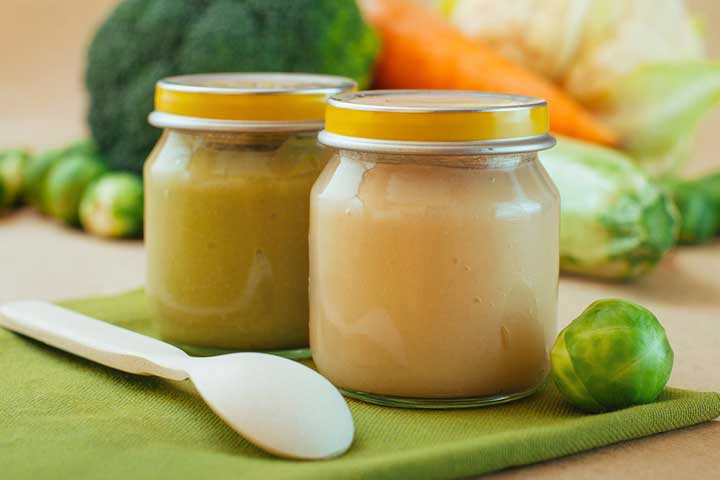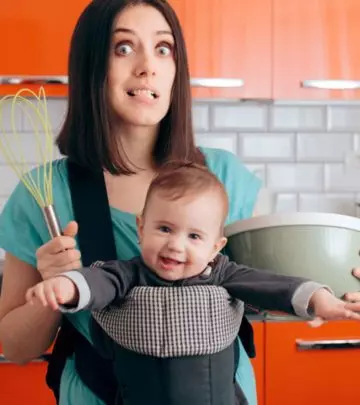
Image: Shutterstock
Ever since our baby is born, most of us get really particular about everything that concerns the little one. This includes everything from their clothes, toys, and room to, most importantly, what they consume. This is especially true if your baby is about to transition from their breastfeeding and bottle feeding stage and is ready to try some solid food. As a parent, you may get quite apprehensive while deciding the right food for your baby since you want to get it just right. Hence it is understandable if you do not want to feed your child any questionable store-bought product during this period. That is how most parents stumble on the idea of preparing homemade baby food. While most parents prefer the homemade option, some of us hesitate to go for it out of fear of messing it up. Well, not anymore! Read below to know all about the concept of homemade baby food and everything you would need to cook up something yummy for your baby.
Homemade vs. Store Bought
Image: Shutterstock
Before deciding on homemade vs. store-bought baby food, you may want to consider what your approach is. Some parents are comfortable with store-bought baby food, while others prefer whipping something up in their kitchen. There is no right or wrong when it comes to what option you finally end up choosing as long as it works for you and your baby.
However, deciding between homemade baby food and store-bought baby food can get a little tricky for some of us. Both of these options come with their own merits and flaws. None of us can deny the fact that store-bought baby food is essentially easy food. It comes in a ready-to-serve formula, which makes it super convenient, especially for busy parents. However, your typical packaged baby food may contain a few chemicals that may even be toxic to your child if consumed regularly. It is pasteurized to kill off any contamination. But it may also destroy the nutrients present in these foods. Homemade food, on the other hand, is packed with many nutrients which may not be present in their store-bought alternatives. And since it is freshly prepared with organic ingredients, homemade baby food is much more flavorful. Unlike packaged foods and jars, you have the liberty to prepare a wide variety of dishes that are appealing to your little one’s taste. This way, your baby won’t end up hating the same food you feed them every day.
What You Need To Make Homemade Baby Food
Image: Shutterstock
If you are going to choose the homemade route, you need to get your hands on a few baby food equipment. Below we list down a few basic equipments that would make preparing homemade baby food a lot easier for you:
- A blender to make purees. Anything from a countertop to immersion or a food processor would do.
- A microwave to cook fruits and vegetables. You could also use a steamer in case you are cooking on a stovetop.
- Freezer bags and ice trays for storage purposes.
- A few storage containers.
Apart from these, you could also find all-in-one products that come with a steamer, mixer, and a couple of containers to store the baby food.
Precautions To Be Kept In Mind
Image: Shutterstock
There are certain precautions to be taken when you are preparing meals for your baby.
- If they are below one year, make sure you do not feed them, honey, in any form as it comes with the risk of botulism.
- Also, make sure that you do not add excess salt or sugar to their food until they are old enough.
- It is also important that you clean all the containers and equipment that are used to prepare the food. Wash all the fruits and vegetables thoroughly to avoid any chance of food poisoning.
- And finally, always go in with clean hands before preparing anything for your little one.
How To Store Homemade Food For Your Baby
Image: Shutterstock
Storing up your baby’s food is a great way of saving your time and energy. Food in the form of purees that are kept in the fridge at or below 40° Fahrenheit can be used for upto 48-72 hours. Freezing food or storing them up in the refrigerator within 2 hours of preparing helps avoid bacterial growth. You could also pour the pureed food into ice cube trays and cover them up using plastic wrap before you freeze them. You could also freeze them in any plastic container with a tight lid. However, make sure you do not store proteins such as chicken and beef for more than 24 hours. It is also crucial that you do not reheat a meal more than once.
Preparing delicious homemade food can be easy and fun — both for you and your baby! You just need to be aware of the right way to go about it. We hope that our article gave you the insight and courage to be successful at it.

